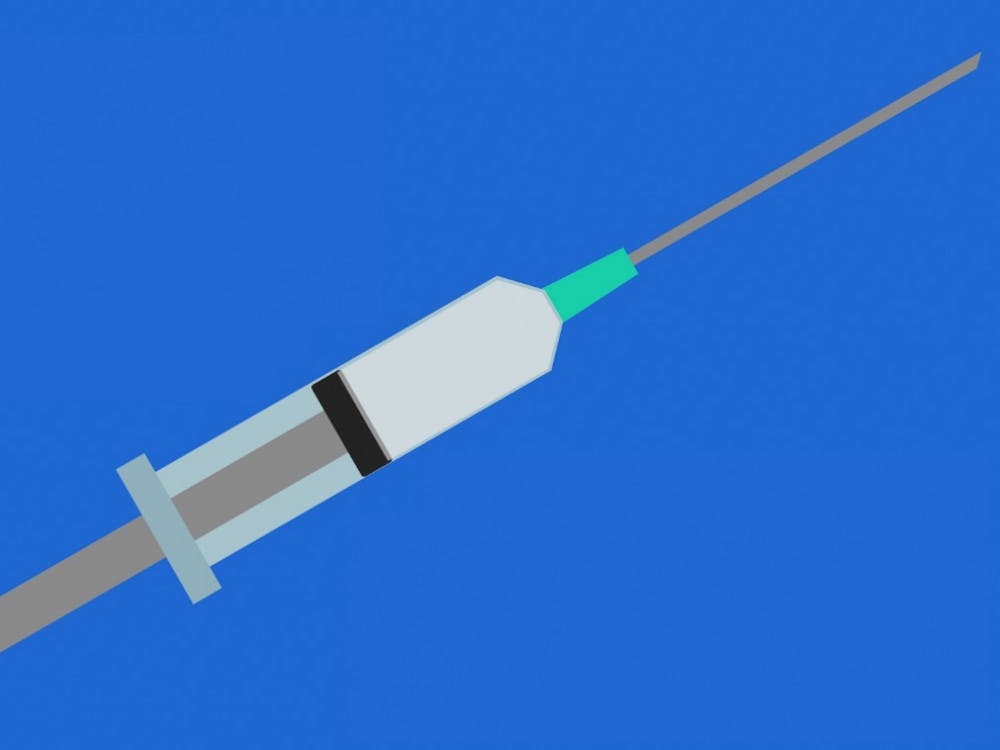An annual trip to the doctor’s for a seasonal injection to prevent contracting influenza? Thanks to three new grants, Duke could make the annual flu shot a thing of the past.
Duke’s Human Vaccine Institute received these funds from the National Institute of Allergy and Infectious Diseases to research the prospects of a universal flu shot. In three separate contracts, NIAID has guaranteed nearly $30 million in the first year, about the equivalent to DHVI’s annual budget. If the three contracts are each extended for the seven-year project, the $400 million total would be the largest federal contract ever awarded to a Duke program.
“We at Duke are honored to participate in this ambitious national endeavor to develop a new flu vaccine and are proud of the remarkably important work that has been done over the years at the Duke Human Vaccine Institute,” said A. Eugene Washington, chancellor for health affairs and president and CEO of Duke University Health System, in a news release.
The influenza virus kills 300,000 to 500,000 people around the world each year. Less than 50% of Americans receive flu shots annually, and this does not safeguard from next year’s strain, which evolves in order to survive. As a result, scientists predict the makeup of the coming year’s virus and then create a flu shot based off the models.
DHVI has an extensive history receiving federal grants. Having worked since 2005 to create an HIV vaccine, the institute obtained an additional $129 million in July to be allocated over the course of seven years.
To Barton Haynes, who serves as the director of DHVI, previous opportunities with NIAID have prepared Duke for this moment.
“We’ve done a really good job with the Center for HIV Vaccine and Immunology consortium for over 15 years, and we’ve just been funded for another seven years to finish that work,” Haynes said in the release. “Our experience in HIV leads directly to our being able to join the universal flu vaccine effort and impact it immediately.”
The first grant focuses on the most difficult part: vaccine development. This aspect involves collaboration with other universities, so Duke is partnering with a number of other universities and hospitals around the country.
For Anthony Moody, associate professor of pediatrics and immunology, the most successful developments place high emphasis on teamwork, so Duke researchers will be in close contact with their peers from other schools.
“This initiative brings together a great group of scientists in the field who have a lot of ideas. We’ll test those ideas and really let the science drive it and figure out which ones are best,” he said in the release.
The second grant concerns vaccine manufacturing. Until researchers propose an initial vaccine, this grant will not come into full effect. For the time being, Matthew Johnson—senior director of product development at DHVI and leader of the second initiative—is moving to assure that Duke has state-of-the-art technology and that a proper hierarchy and partnership is established within the office.
Professor of Pediatrics Chip Walter will head the direction of the third grant, which will fund clinical trials. The trials will move into healthy adults before ending with more populations more susceptible to the flu, such as children and pregnant women.
Get The Chronicle straight to your inbox
Signup for our weekly newsletter. Cancel at any time.

Maria Morrison is a Trinity senior and a digital strategy director for The Chronicle's 117th volume. She was previously managing editor for Volume 116.

